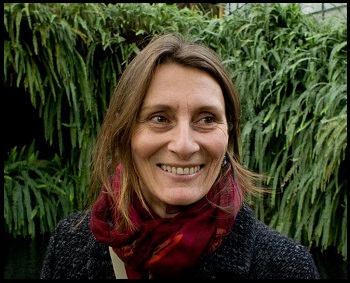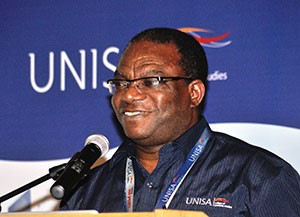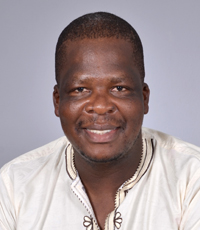
Seminars’ coordinators
 Boaventura de Sousa Santos is Professor of Sociology at the School of Economics, University of Coimbra (Portugal), Distinguished Legal Scholar at the University of Wisconsin-Madison Law School and Global Legal Scholar at the University of Warwick. He is the Director of the Centre for Social Studies of the University of Coimbra and Scientific Coordinator of the Permanent Observatory for Portuguese Justice. Currently he coordinates of the research project ALICE – Strange Mirrors, Unsuspected Lessons.
Boaventura de Sousa Santos is Professor of Sociology at the School of Economics, University of Coimbra (Portugal), Distinguished Legal Scholar at the University of Wisconsin-Madison Law School and Global Legal Scholar at the University of Warwick. He is the Director of the Centre for Social Studies of the University of Coimbra and Scientific Coordinator of the Permanent Observatory for Portuguese Justice. Currently he coordinates of the research project ALICE – Strange Mirrors, Unsuspected Lessons.
He has published widely on globalization, sociology of law and the state, epistemology, democracy, and human rights in Portuguese, Spanish, English, Italian, French and German.
Among his most recent and relevant publications are: Epistemologies of the South: Justice Against Epistemicide (Paradigm, 2014); Toward a New Common Sense: Law, Science and Politics in the Paradigmatic Transition (Routledge, 1995); The Rise of the Global Left. The World Social Forum and Beyond (Zed Books, 2006); Toward a New Legal Common Sense. Law, globalization, and emancipation (Butterworths, 2002).
Valentin Mudimbe is the Newman Ivey White Professor of Literature at Duke University. His work has had a major impact on many disciplines including Philosophy, Sociology, Anthropology, Linguistics, Literature, and History.
He received honorary degrees from the University of Paris VII (1997) and the Catholic University of Leuven (2006). His areas of interest and research phenomenology and structuralism, mythical narratives, and language.
Among his published books, are The Invention of Africa: Gnosis, Philosophy and the Order of Knowledge (Indiana University Press, 1988); The Idea of Africa: African Systems of Thought (Indiana University Press, 1994); Tales of Faith: Religion as Political Performance in Central Africa (Athlone Press, 1997); and The Normal & Its Orders (co-editor, with Godé Iwele & Laura Kerr, 2007).
 Cecília MacDowell Santos is a researcher at the Centre for Social Studies (CES, Coimbra University) and associate professor of sociology at the University of San Francisco (California, USA). Her current research interests center on legal mobilization and the (re)construction of human rights at the local, national and transnational scales.
Cecília MacDowell Santos is a researcher at the Centre for Social Studies (CES, Coimbra University) and associate professor of sociology at the University of San Francisco (California, USA). Her current research interests center on legal mobilization and the (re)construction of human rights at the local, national and transnational scales.
Among her most recent publications are Women's Police Stations: Gender, Violence, and Justice in São Paulo, Brazil (Palgrave Macmillan, 2005), the edition of A Mobilização Transnacional do Direito: Portugal e o Tribunal Europeu dos Direitos Humanos (Almedina Press, 2012), and the co-edition of Desarquivando a Ditadura: Memória e Justiça no Brasil (Hucitec Press, 2009). Her work has also been published in edited volumes and peer-reviewed international journals, including Latin American Research Review, Cadernos PAGU and Sur-International Journal on Human Rights, among others.
 Maria Paula Meneses is a researcher at the Centre for Social Studies, University of Coimbra. She is also a member of the Centre for Social Studies Aquino de Bragança, in Mozambique. Among the research topics which she currently works on are postcolonial debates, legal pluralism, with particular emphasis on the relations between the State and the 'traditional authorities' in the African context , and the role of official history, memory and 'other' stories in the rescue of a broader sense of belonging in the field of contemporary identity processes, especially in the African geopolitical context.
Maria Paula Meneses is a researcher at the Centre for Social Studies, University of Coimbra. She is also a member of the Centre for Social Studies Aquino de Bragança, in Mozambique. Among the research topics which she currently works on are postcolonial debates, legal pluralism, with particular emphasis on the relations between the State and the 'traditional authorities' in the African context , and the role of official history, memory and 'other' stories in the rescue of a broader sense of belonging in the field of contemporary identity processes, especially in the African geopolitical context.
Maria Paula Meneses has taught at the University Pablo Olavide (Spain), SOAS (UK), Bayreuth (Germany), Universidade Federal Fluminense (Brazil), among others.
Among her published works are: O Direito por fora do Direito: as instâncias extra-judiciais de resolução de conflitos em Luanda (co-edited with Julio Lopes, Almedina, 2012); Epistemologias do Sul (co-edited with Boaventura de Sousa Santos, Cortez, 2012); Law and Justice in a Multicultural Society: The Case of Mozambique (co-edited with Boaventura de Sousa Santos and João Carlos Trindade, CODESRIA, 2006).)

José Manuel Mendes, a researcher of the Centre for Social Studies - University of Coimbra, holds a PhD in Sociology by the School of Economics of the University of Coimbra, where he is an Assistant Professor. His research focus is on inequalities, social mobility, social movements and collective action and, more recently, on the themes of risk and social vulnerability.
He is co-coordinator with Rita Serra of the Risk Observatory (OSIRIS) of the Centre for Social Studies. He also co-coordinates, with Luísa Sales, the Trauma Centre of the Centre for Social Studies.
Among his more important publications are Os lugares (im) possíveis da cidadania. Estado e risco num mundo globalizado (co-edited with pedro Araújo, Almedina, 2013) and Do ressentimento ao reconhecimento: vozes, identidades e processos políticos nos Açores (1974-1996) (Afrontamento, 2003).
 Cristiana Bastos is an anthropologist and a senior researcher at the Institute of Social Sciences, University of Lisbon. Her main interests combine world systems, north/south relations, transnationalism, health, medicine, science, politics and social differentiation. She worked on population dynamics in southern Iberia and on the impact of the AIDS pandemic, with fieldwork in Brazil (Global Responses to AIDS: Science in Emergency, Bloomington: Indiana University Press, 1999).
Cristiana Bastos is an anthropologist and a senior researcher at the Institute of Social Sciences, University of Lisbon. Her main interests combine world systems, north/south relations, transnationalism, health, medicine, science, politics and social differentiation. She worked on population dynamics in southern Iberia and on the impact of the AIDS pandemic, with fieldwork in Brazil (Global Responses to AIDS: Science in Emergency, Bloomington: Indiana University Press, 1999).
She is currently working on aspects of Portuguese colonialism in Asia and Africa. She has published widely on that topic, including articles, book chapters and edited volumes. She taught on different graduate programmes in the areas of anthropology, social sciences, public health, international relations and science studies, in Portugal (ICS, ISCTE, Coimbra), Brazil (UERJ, UFRJ, UNICAMP), and the United States (Brown University).
She is the co-author of Trânsitos Coloniais: Diálogos Críticos Luso-Brasileiros (with Miguel Vale de Almeida and Bela Feldman-Bianco, Lisboa, ICS, 2001).
 Albert ‘Albie’ Louis Sachs was a judge on the Constitutional Court of South Africa until his retirement in October 2009. Albie Sachs started practice as an advocate defending people charged under racial statutes and security laws under South African Apartheid. Sachs got a law degree from the University of Cape Town and a PhD from Sussex University.
Albert ‘Albie’ Louis Sachs was a judge on the Constitutional Court of South Africa until his retirement in October 2009. Albie Sachs started practice as an advocate defending people charged under racial statutes and security laws under South African Apartheid. Sachs got a law degree from the University of Cape Town and a PhD from Sussex University.
Later on, after being arrested and placed in solitary confinement for over five months, for his work in the freedom movement, Albie Sachs went into exile in England, and later Mozambique. In 1988, in Maputo, Mozambique, he lost an arm and his sight in one eye when a bomb was placed in his car.
After the bombing, he devoted himself to the preparations for a new democratic constitution for South Africa. He returned to South Africa and served as a member of the Constitutional Committee and the National Executive of the African National Congress. Among his weel-known books are The Strange Alchemy of Life and Law (Oxford University Press, 2010) and The soft vengeance of a freedom fighter (California University Press, 1990).

Oscar Guardiola-Rivera is now Assistant Dean of the School of Law, Birkbeck College – University of London, where he is a Senior Lecturer in Law. He is the writer of the award-winning What If Latin America Ruled the World? (Bloomsbury, 2010), chosen as one the best non-fiction books that year by The Financial Times.
Oscar Guardiola-Rivera graduated as a lawyer in Bogotá (Universidad Javeriana, 1993), and obtained his PhD in Philosophy at the King’s College of the University of Aberdeen.
He is on the editorial boards of Naked Punch: An Engaged Review of Arts & Theory; International Law. Colombian Journal of International Law; and Open Law Journal. His most recente book is Story of a Death Foretold. The Coup Against Allende, 9/11/1973 (Bloomsbury, 2013).

Sharit Bowmit is Professor and Chairperson at the Centre for Labour Studies, School of Management and Labour Studies, Tata Institute of Social Sciences, Mumbai, India. His research interests are centered around Labour organizations and Informal employment; Gender and employment plantation labour; Worker cooperatives, Self-management, among others. He has been a visiting professor in various universities: Brazil, Germany, etc.
Sharit Bhowmik is a pioneer in urban sociology relating to the informal sector. He has been involved extensively in community education and networking around legal and other issues relating to street hawkers and slum dwellers.
Among his most recent publications are The State of Labour: The Global Financial Crisis and its Impact (edited by S. Bow, Routledge, 2013); Financial Inclusion of the Marginalized. Street Vendors in the Urban Economy (Springer, 2013), Industry, Labour and Society (Orient Blackswan, 2012) and Financial Inclusion of the Marginalised: Street Vendors in the Urban Economy (with Debdulal Saha, Springer, 2012).
 Giovanna Micarelli is Associate Professor of Anthropology at the Pontificia Universidad Javeriana of Bogotá, Colombia, and Researcher at the Center for Social Studies, Coimbra. Before coming to the academia, she had been working as an independent scholar and consultant for indigenous organizations of Peruvian and Colombian Amazonia, including the Conibo Shipibo of the Ucayali region, the Tikuna of Amacayacu, and multiethnic communities located at the periphery of the Colombian town of Leticia.
Giovanna Micarelli is Associate Professor of Anthropology at the Pontificia Universidad Javeriana of Bogotá, Colombia, and Researcher at the Center for Social Studies, Coimbra. Before coming to the academia, she had been working as an independent scholar and consultant for indigenous organizations of Peruvian and Colombian Amazonia, including the Conibo Shipibo of the Ucayali region, the Tikuna of Amacayacu, and multiethnic communities located at the periphery of the Colombian town of Leticia.
Research topics include indigenous critical engagements with development and modernity, the place of social-environmental understandings in the construction and defense of territory, cultural politics in intercultural contexts, particularly those relating to systems of health and illness and education, and food sovereignty. The most recent extensions of her research explore the links between indigenous epistemologies, and notions of personal and collective wealth and well-being. Her collaboration with indigenous people resulted in several national and international grants to indigenous organizations and individuals in support to their struggles for cultural and political recognition.
 Dhruv Pande is a full-time post-doc researcher at Center for Social Studies -- the ALICE Project. He is a PhD in Political Theory from LUISS Guido Carli University, Rome. His research is on Post Colonial Cultural Identity and its implications for Human Rights. He has been an International Graduate Visiting Research Fellow at the Department of Political Science, University of Toronto and a research intern/trainee at Afromedianet, an International Human Rights Organization based at Seyssel, France. He has done his Masters in Political Science from the University of Delhi, India and worked as Research Associate at the Developing Countries Research Center, University of Delhi, on 'Asian Conceptions' of Justice'.
Dhruv Pande is a full-time post-doc researcher at Center for Social Studies -- the ALICE Project. He is a PhD in Political Theory from LUISS Guido Carli University, Rome. His research is on Post Colonial Cultural Identity and its implications for Human Rights. He has been an International Graduate Visiting Research Fellow at the Department of Political Science, University of Toronto and a research intern/trainee at Afromedianet, an International Human Rights Organization based at Seyssel, France. He has done his Masters in Political Science from the University of Delhi, India and worked as Research Associate at the Developing Countries Research Center, University of Delhi, on 'Asian Conceptions' of Justice'.
JIMI (OLUJIMI) ADESINA
 Jimi (Olujimi) Adesina is a National Research Foundation SARChI Chair in Social Policy at the Archie Mafeje Research Institute, at UNISA, South Africa. Previously he served as Professor of Sociology and Head of Department at the University of Western cape, also in South Africa. He was educated at the University of Ibadan (Nigeria) and Warwick University (UK). From 1983 to 2000 he taught at the University of Ibadan, where he served as Head of the Department of Sociology and held an adjunct position as Senior Research Fellow at the Centre for Econometric and Allied Research. Between 2002 and 2008, he was a member of the Executive Committee of the Council for the Development of Social Science Research in Africa (CODESRIA) and the Chair of its Programme Sub-Committee. His research and teaching interests include the Political Economy of Africa’s Development, Methodology, Social Theory, and Social Policy. Among his most recent publications are “Social Policy in a mineral rich economy: the case of Nigeria” in Katja Hujo (ed.) Social Policy in Mineral Rich Economies. London: Palgrave Macmillan, 2012; “Archie Mafeje and the Pursuit of Endogeny,” Africa Development, 33(4): 133-152 (2008), Social Policy in sub-Saharan African Context: In Search of Inclusive Development (Basingstoke: Palgrave/Macmillan) and Africa and Development Challenges in the New Millennium (co-edited with Yao Graham & Adebayo Olukoshi in 2006 and published by ZED Press).
Jimi (Olujimi) Adesina is a National Research Foundation SARChI Chair in Social Policy at the Archie Mafeje Research Institute, at UNISA, South Africa. Previously he served as Professor of Sociology and Head of Department at the University of Western cape, also in South Africa. He was educated at the University of Ibadan (Nigeria) and Warwick University (UK). From 1983 to 2000 he taught at the University of Ibadan, where he served as Head of the Department of Sociology and held an adjunct position as Senior Research Fellow at the Centre for Econometric and Allied Research. Between 2002 and 2008, he was a member of the Executive Committee of the Council for the Development of Social Science Research in Africa (CODESRIA) and the Chair of its Programme Sub-Committee. His research and teaching interests include the Political Economy of Africa’s Development, Methodology, Social Theory, and Social Policy. Among his most recent publications are “Social Policy in a mineral rich economy: the case of Nigeria” in Katja Hujo (ed.) Social Policy in Mineral Rich Economies. London: Palgrave Macmillan, 2012; “Archie Mafeje and the Pursuit of Endogeny,” Africa Development, 33(4): 133-152 (2008), Social Policy in sub-Saharan African Context: In Search of Inclusive Development (Basingstoke: Palgrave/Macmillan) and Africa and Development Challenges in the New Millennium (co-edited with Yao Graham & Adebayo Olukoshi in 2006 and published by ZED Press).
SABELO J. NDLOVU-GATSHENI

Sabelo J. Ndlovu-Gatsheni is a National Research Foundation (NRF) rated social scientist and a decolonial thinker. Currently he is the Head of the Archie Mafeje Research Institute (AMRI) based at the University of South Africa (UNISA). Previously Prof. Ndlovu-Gatsheni worked in the History Department at the University of Zimbabwe, at Monash University, at The Open University in the United Kingdom. With research interests focused on nationalism, African subjectivity, identities and being, decolonial and postcolonial theories, epistemology, knowledge, power, he has published widely on this topics. Among his most recent publications are Nationalism and African National Projects in Southern Africa: New Critical Reflections (Pretoria: Africa Institute of South Africa, 2013); Empire, Global Coloniality and African Subjectivity (Oxford & New York: Berghahn Books, 2013); and Grotesque or Redemptive Nationalism? Rethinking Contemporary Politics in Zimbabwe (Oxford & Bern: Peter Lang International Academic Publishers, 2011).
EBRIMA SALL

Ebrima Sall is the Executive Secretary of CODESRIA. Before his appointment as Executive Secretary, CODESRIA in April 2009, Dr Sall was Senior Researcher at the Nordic Africa Institute (NAI) in Uppsala (Sweden) and Director of the Centre for the Promotion of Village Savings and Credit Associations (VISAC) Gambia. He also taught at the University Gaston Berger of Saint-Louis (UGB) in Senegal for five years. He holds a Ph.D. in sociology from the University of Paris 1 Panthéon-Sorbonne (France), was promoted ‘Maitre de Conférences/Senior lecturer in "Sociology-Demography" by the French National Universities Council (CNU) in 1992. He is also a beneficiary of the post-doctoral fellowship of the Yale University Programme in Agrarian Studies.
Before assuming the duties of Executive Secretary Dr Sall, successively, was the Programmes Officer in charge of the Academic Freedom and Child & Youth & Conflict Programme, Senior Programme Administrator, Research Programme Officer and Head of Research Programme. His most recent publications include the following books: Human Rights and the Dilemmas of Democracy in Africa (co-edited with Lennart Wohlgemuth), Citizenship and Violence in Cote d’Ivoire (co-edited with Jean-Bernard Ouedraogo) and Women in Higher education: Gender and Academic Freedom in Africa and the Social sciences in Africa. Dr Ebrima Sall is Gambian.
PABLO GENTILI

Pablo Gentili is Doctor in Education (University of Buenos Aires) and Master of Social Science with a special mention in Education (Latin American Faculty of Social Sciences). He teaches at Universidad del Estado de Río de Janeiro. Author and editor of several books on education reforms in Latin America, higher education and the right to education, published in Spanish and Portuguese. His last book published in Spanish is “Pedagogía de la Igualdad. Ensayos contra la educación excluyente” (Educational Equality. Trials against exclusion in education) (Siglo XXI, 2011). Currently, he is the Executive Secretary of the Latin American Council of Social Sciences (CLASCO) and Director of the Latin American Faculty of Social Sciences (FLACSO, Brazil).
JOSÉ ANTÓNIO BANDEIRINHA

José António Bandeirinha, architect, is currently an associate professor in Department of Architecture, Science and Technology Faculty of Coimbra University. His PhD thesis was about the SAAL process and the architecture that emerged as the result of the revolutionary process of April 25th 1974.
Having as main reference architecture and space organization, he has been devoting his work to diverse subjects — city, housing, theatre, culture.
He was Director of the Colégio das Artes of the University of Coimbra.
ÉLIDA LAURIS

LL.B., LL.M. (Human Rights and Social Relations) from Federal University of Para (Brazil) and Post-doctoral researcher at the Centre for Social Studies, University of Coimbra. She is currently executive coordinator in ALICE Project, developing also the post-doctoral research project "Comparative Study of Social Transformative Practices, Its Outreach and Meanings Extracted from The Brazilian and South African Constitutions". She has experience in law, with emphasis on constitutional law and sociology of law and courts, acting mostly on the following themes: access to justice, judicial independence, judicial reform, separation of powers, judicialisation of politics, constitutionalism and constitutional hermeneutics.





